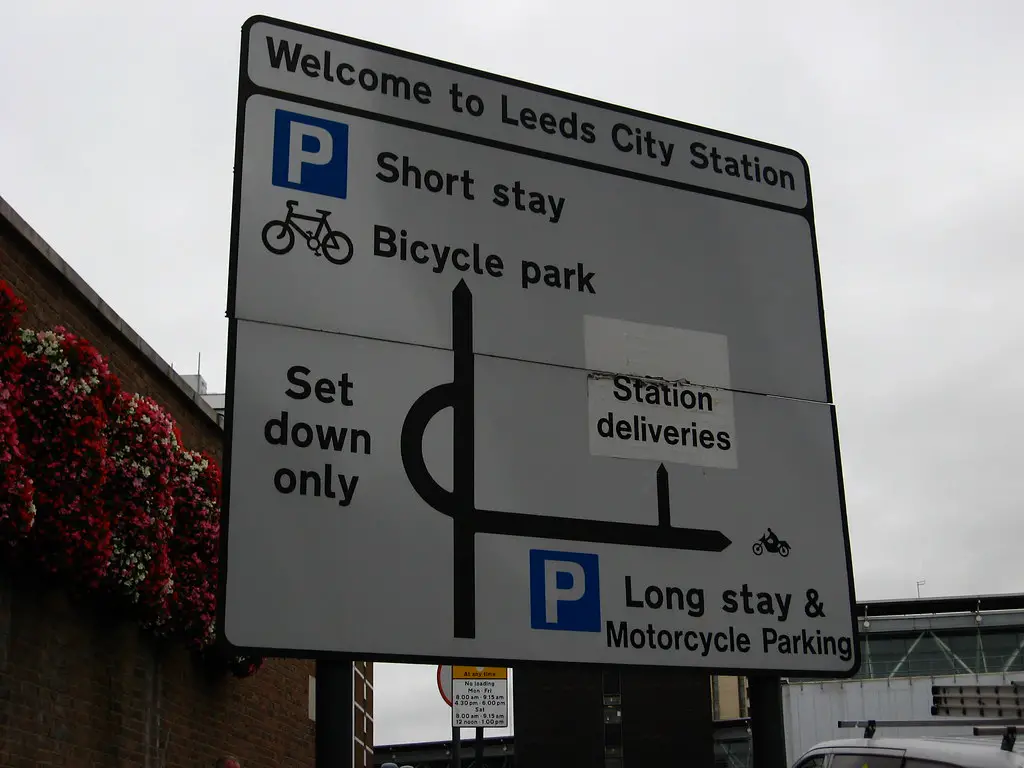Remember when your brain was basically running on espresso shots and sheer ambition? You could remember every password, recall the name of that one guy from 4th grade, and hold three conversations while parallel parking. But somewhere around 45, things start… glitching. You walk into rooms with purpose and exit with confusion. Words hide in the back of your brain like shy raccoons. And don’t even get us started on trying to remember why you opened Instagram in the first place.
The truth? Your brain isn’t broken—it’s just aging like the rest of you. But it’s sneaky about it. These aren’t dramatic changes; they’re more like little quiet shutdowns you don’t notice until you’re mid-sentence, Googling “Why can’t I remember simple words anymore?” So let’s talk about the mental functions that start slipping into low-power mode after 45—and no, forgetting where you parked isn’t just “a busy day thing.”
1. Multitasking Ability

If you feel like switching between tasks takes more effort than it used to, congrats—you’re not lazy, your brain is just being age-appropriate. Multitasking relies heavily on executive function, which starts to get a little creaky as we approach our mid-40s. Once upon a time, you could cook dinner, help with homework, and mentally rehearse a presentation, all while listening to a podcast. Now? You forget what you’re cooking if someone asks you a question.
A report in WebMD explained that our prefrontal cortex—the part of the brain that handles multitasking—shrinks slightly with age, especially after 45. That means juggling too many things at once becomes mentally expensive, and honestly? It should’ve always been overrated. So next time someone brags about multitasking, just say, “Cool, but I like to focus on one masterpiece at a time.” Boom—age becomes wisdom.
2. Processing Speed

Remember when you could juggle emails, texts, Spotify playlists, and a mental grocery list all at once? Yeah, that cognitive circus starts to slow its roll after 45. This isn’t because you’re getting dumber—your brain’s just not zipping around quite as fast. Think of it like your brain switching from 5G to 3G; it still works, it’s just buffering a bit.
According to a study featured in The National Institute Of Health, the brain’s processing speed starts to decline as early as your 30s, but it becomes more noticeable in your mid-40s. So when you’re trying to make a quick decision and your brain’s like “hold up, lemme think,” it’s not you—it’s biology. This slowdown can affect everything from decision-making to reaction time (yes, including realizing someone’s flirting with you). On the plus side, you might make fewer impulsive decisions—no more midnight Amazon purchases? We can dream.
3. Short-Term Memory Recall

Ever walk into a room with purpose and leave with existential confusion? Welcome to the “Where Did I Put My Phone?” Olympics, brought to you by short-term memory fade. This charming little feature of the brain gets weaker around middle age and becomes more of a recurring guest star the older you get. You’re not broken, you’re just… buffering.
Research cited by The Mayo Clinic shows that short-term memory and working memory begin to decline around age 45, even in healthy adults. This means you might struggle to remember things you just heard or read—like someone’s name, or the plot of the show you watched last night (yep, even if it was Succession). The good news? Long-term memories stay intact way longer, so you’ll still remember every word to “No Scrubs” at karaoke. Just maybe write down your parking spot.
4. Sleep-Related Brain Restoration

The “sleep is for the weak” phase ends the moment you turn 45 and realize your brain no longer rebounds from a bad night’s rest. Deep sleep—aka the brain’s spa day—gets shallower with age, meaning less restorative magic happens while you’re drooling on your pillow. So if you wake up feeling like you fought a bear in your dreams, that’s probably just your aging brain phoning it in during REM.
According to a report by Psychology Today, sleep architecture changes significantly in your 40s and 50s, with decreased slow-wave (deep) sleep. That affects your brain’s ability to clear waste, reset emotionally, and consolidate memories. So not only do you feel groggier, but your brain also misses out on essential overnight housekeeping. No wonder we need three coffees just to form a sentence by 9 a.m. Take the nap. Claim the melatonin. You’re not lazy, you’re optimizing.
5. Verbal Fluency

You know that annoying tip-of-the-tongue feeling when you’re trying to recall a word you use all the time? Yeah, that starts making regular appearances post-45. Verbal fluency—the brain’s ability to summon words quickly—takes a nosedive even if your vocab game was once top-tier. Suddenly “refrigerator” becomes “the cold box thingy” and everyone’s looking at you like you’ve had a stroke.
As Science Direct noted, studies show that while vocabulary size tends to remain stable, the speed and ease of word retrieval declines with age. So you still know the word, it’s just stuck in a cognitive traffic jam. This can be especially frustrating during meetings or social events, where quick articulation matters. But hey, you’re not losing your mind—you’re just living in a slower-loading version of it. You’ve got the wisdom of a scholar, even if it takes you a second to remember the term “charcuterie.”
6. Emotional Filtering

Once you hit your mid-40s, your brain starts giving fewer damns about the little stuff—and honestly, that’s not always a bad thing. Emotional filtering, or the brain’s ability to process and manage emotional input, begins to wear thin, kind of like your patience at family reunions. Small irritations that used to roll off your back might hit a little harder. Or, flip side: big feelings you used to obsess over now get a casual shrug.
This is because your brain’s amygdala and prefrontal cortex aren’t playing as nicely together as they once did. The result? You might overreact to a passive-aggressive text, or just totally ignore someone yelling at you in traffic. It’s not inconsistency—it’s emotional roulette. You may also find it harder to stay neutral in conflict; you either cry more easily or become the human version of a brick wall. Your reactions become more polarized and less filtered. It’s not that you’re unstable—you’ve just got fewer emotional tabs open.
7. Risk Assessment

Midlife isn’t just when you buy a convertible—it’s also when your brain quietly shifts its risk calculation settings. What once felt daring and fun might now feel like a liability nightmare waiting to happen. That’s because the parts of your brain responsible for assessing risk—especially the anterior insula—start to chill out a bit. The thrill-seeker version of you slowly turns into the spreadsheet guy who checks Yelp reviews before trying a new brunch spot.
This isn’t cowardice, it’s caution—evolution’s way of telling you not to break a hip skydiving. You might second-guess things you used to do without blinking, like spontaneous travel or changing careers. Or you overcompensate and double down on risky decisions just to feel alive again (cue the crypto investment). Either way, your brain is adjusting the balance between “YOLO” and “maybe tomorrow.” By 50, it’s more “do I have the energy for this?” than “let’s see what happens.” And that’s perfectly okay.
8. Spatial Navigation

You used to know your way around a new city after one Uber ride. Now? You’re using Google Maps to get home from your cousin’s house for the third time this month. That’s because spatial navigation—the brain’s GPS system—starts glitching after 45. It’s not just about getting lost, it’s about having a fuzzier mental map in general.
Your hippocampus is doing the best it can, but the signal gets weaker with age. This means you’re more likely to miss a turn, forget where you parked, or swear your house keys are “right here!” when they’re actually still in the front door. You might start relying more on landmarks than street names. Or doing that thing where you walk slower while looking around like a confused tourist in your own neighborhood. It’s humbling, sure, but it also makes life a little more adventurous. Who needs routine when every trip to Trader Joe’s is a quest?
9. Cognitive Flexibility

Cognitive flexibility is your brain’s ability to switch between thinking about two different things—or to think about multiple concepts at once. In your 20s and 30s, this was your secret weapon in debates, improv, or even just making fun TikToks while meal-prepping. Post-45, though, that flexibility starts to stiffen, like trying to touch your toes without warming up first.
You may notice it when someone suggests a new way of doing something and your first instinct is “Nah, this works.” Or when plans change last minute and your brain short-circuits. This isn’t stubbornness, it’s neurological lag. Your brain’s more comfortable sticking with known routes and familiar systems. Problem-solving becomes more linear, and less “let’s try this weird workaround.” It’s not that you’re incapable of adapting—it just takes longer to shift gears. And honestly, sometimes your way is better… you just need a beat to get there.
10. Sensory Integration

Here’s a fun one: your brain starts mixing up the way it interprets input from your senses. Sounds wild, but as you age, sensory integration—the process of combining info from sight, sound, touch, etc.—can get a little wobbly. Ever mishear someone and respond with something wildly off-topic? Or reach for your phone after mistaking a buzzing fridge for a notification?
It’s not you being distracted, it’s your brain trying to stitch the world together with slightly frayed thread. This becomes especially noticeable in crowded or noisy environments, where everything feels a little “too much.” Restaurants become overwhelming, movie theaters feel louder, and don’t even get started on open-floor-plan offices. Your brain’s doing double duty trying to filter and organize all the stimuli. So yeah, that overwhelmed feeling isn’t dramatic—it’s neurological. Noise-canceling headphones and sunglasses? Not accessories. Lifelines.
11. Attention Span

By midlife, your attention span is less of a laser beam and more of a disco ball—bouncing light around, but rarely staying put. Holding focus on one task for an extended period becomes surprisingly difficult, especially when TikTok, group chats, and 400 unread emails are just a tap away. Your brain’s ability to block out distractions quietly packs its bags after 45.
This shift makes deep work harder, and shallow scrolling more tempting. You may start to reread the same paragraph three times or lose your train of thought mid-sentence. Not because you don’t care—but because your brain’s prioritizing rest over mental marathons. Multitasking only makes it worse (see item #2), and no, coffee alone can’t fix it. The upside? You learn to focus in shorter, sharper bursts—aka “microproductivity.” It’s less about marathon sessions and more about power sprints. Set a timer, close the tabs, and let that disco brain shine.
12. Social Processing

Ever find yourself zoning out halfway through a story or blanking on someone’s name five seconds after they said it? That’s your social processing getting a little laggy. By your mid-40s, the part of your brain that helps interpret facial expressions, tone of voice, and social cues starts to ease up. Conversations may feel more tiring. You might even dread small talk (ok, more than you used to).
This isn’t antisocial behavior—it’s just your brain asking for fewer stimuli. Processing group dynamics or complex emotional conversations can drain you faster than it used to. You may also find it harder to “read the room,” especially in fast-paced environments. The irony? Your actual social wisdom has improved—you just don’t want to use it on Karen from PTA anymore. You start prioritizing meaningful connection over quantity. TL;DR: it’s not social anxiety, it’s selective engagement.
13. Impulse Control (Again)

Okay, plot twist: impulse control doesn’t just decline in kids and teens. In middle age, it can swing back around like a boomerang. After years of being the responsible one, your brain’s inhibitory functions (especially in the prefrontal cortex) can relax a little too much. Suddenly you’re ordering snake-print boots at midnight or telling off your boss in a reply-all.
This is partly hormonal, partly neural fatigue. Your brain gets tired of always saying no, especially when the dopamine hits are few and far between. You might feel more rebellious, or start doing things you wouldn’t have dared in your 30s. It’s not a midlife crisis—it’s just your brain giving you a hall pass for fun. Of course, not every impulse should be followed (Vegas tattoo, maybe not). But a little reckless joy? Probably earned it.

